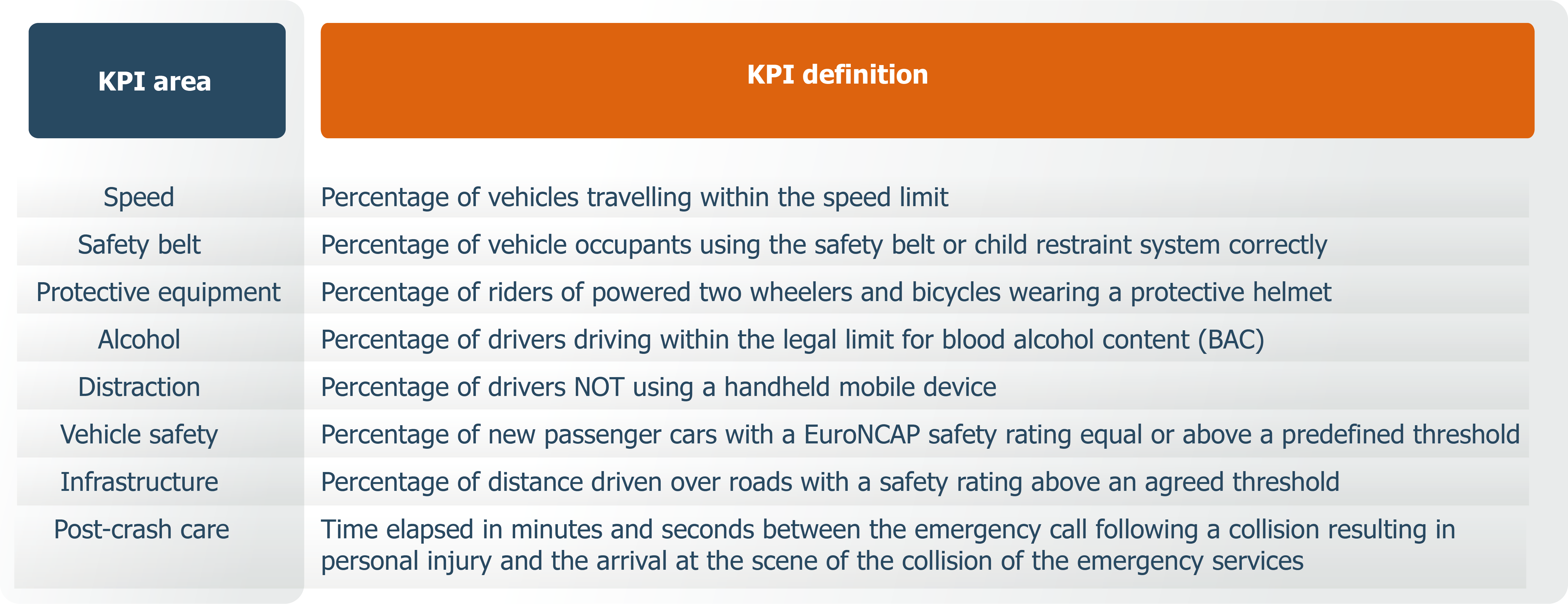Context
The European Commission has formulated the ambitious goal to halve the number of road fatalities by 2030 and a long term-goal to move close to zero fatalities by 2050. This approach puts the road user at the centre of all activities, aiming to prevent fatalities and serious injuries by building layers of protection (in relation to infrastructure, vehicles, road use, post-crash care). The different layers of protection can compensate for each other when one element fails. It is based on a performance framework with a hierarchy of targets and the tracking of progress towards these targets.
Road safety KPIs (Key Performance Indicators) are an integral part of the ‘Safe System’ approach to road safety. Several EU Member States already collect indicators for their national policies, in order to measure progress and effectiveness of road safety initiatives. Such indicators contribute to the understanding of the different issues that influence overall road safety performances. They help to underpin national policies and, at European level, the European Commission’s Road Safety Policy Framework 2021-2030 and Strategic Action Plan on Road Safety.
Aim of the project
The aim of the Baseline project was to produce values for Road Safety KPIs (Key Performance Indicators) in EU Member States. Each participating country provided between one and eight national KPI values, that were comparable across countries and met the minimum methodological requirements of the European Commission. This project also contributed to capacity building in the EU, in particular in the Member States which did not yet collected and calculated the data for the KPIs.
List of KPIs and their definition
